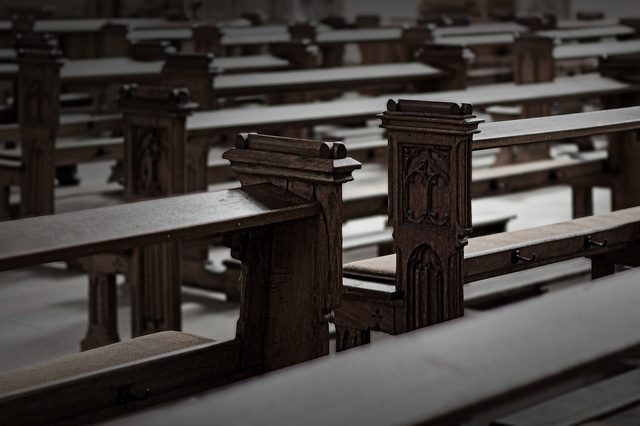Clergy are reluctant to let silence blossom within their service plans for fear that their congregations will become bored. When worship is conceived primarily as a clerical performance and, therefore, an entertainment, silences seem out of place. They have limited uses in entertainment. Silence interrupts a show’s flow and makes its
audience nervous. It suggests that a performer’s concentration has lapsed or that his timing is off. On the other hand, when worship is truly a communal activity, silence feels comfortable. It functions as a sacrament. – A. Daniel Frankforter
Silence is something that makes us pretty uncomfortable. I think it’s a problem of failing to engage with the present; with our current reality. It is at this point that our problem with silence meets with a similar problem of stillness.
We live sedentary lifestyles, but cannot be still.
We have little meaningful conversation, but cannot be silent.
Most of the things children in our society find to engage themselves with is mindless drivel and repetition created to merely fill the space. I confess I remember well the times during my childhood where I could waste away hours upon hours with television and computer games. After the sorts of activities lose their novelty and become rote and repetitive, our senses lose their place in time.
As adults, we find similar problems in the mundanity of life and work. We fidget and flail and don’t get anything productive done. Our minds never stray from all the items on our “to-do” lists. The baggage of guilt and regret keep us mired in the past. Anxieties of what is yet to be pull us toward the future. And we never find a way to enter the present moment. The discipline of silence becomes quite essential at this point if we are to be fully engaged people. We need to be able to fully engage in our present moment if we are to have a genuine encounter with the Creator.
That’s where liturgy – and I mean “liturgy” here quite literally as a communal task, something we approach with seriousness and sobriety – is absolutely necessary for the Christian journey. Because churches so frequently seek to provide entertainment – pure sensory stimulation – the discipline of silence in corporate worship is a lost art among members of Christ’s church. In fact, sound amplification and visual media seem to always be on the increase, as the church tries in vain to make up for the dulling of our senses. The sensory assault elevates, but actual engagement wanes.
Silence offers congregants the opportunity to place themselves squarely in the middle of the present moment where the Lord promises to meet us.
Of course, this requires sacrificing our modern sense of pragmatism as it pertains to worship. Times of silence in the liturgy don’t make sense to a culture that interprets silence as a mistake, a blunder, a sign of disorganization, or worse, a wasted opportunity. But more than ever, when the frenetic pace of life has permeated the sphere of worship, we need to cultivate the discipline of silence, stillness, rest, and reflection. It’s in that moment, when we finally engage in the present, when the singer’s breath is drawn, when the Book is opened, when the bread is fractured and wine spilled, where we meet God.
And it’s that moment where we find the strength and sustenance to be present for a world that desperately needs us there.
Photo:
Flickr, creative commons 2.0














